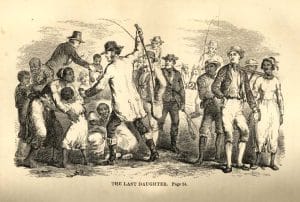This story was originally published by Barn Raiser, your independent source for rural and small town news.
Since October 1, the majority in Congress has decided to shut down the government rather than make a deal to pass a budget that extends affordable health care. Even as Congress has disrupted vital services, next month over 20 million Americans are on track to have their health care costs skyrocket and critical food assistance dry up.
In the face of long-standing challenges and recent setbacks, rural people need hope—a practical vision for how things can get better. Released on Friday, October 24, the Rural Policy Action Report offers a positive agenda to improve rural people’s lives and deliver promised lower costs, higher wages and freedom to make choices about their own lives. It outlines policies that are popular with everyday Americans and provides practical steps Congress could take immediately to deliver for the American people.
Our country runs on the work and innovation of working people. But for decades, big corporations and the ultrawealthy have exploited government influence to gain special treatment and put up barriers for the rest of us. The government shutdown is one more example of how Congress prioritizes providing the wealthy with massive new tax breaks while the rest of us face higher costs for health care, housing and groceries.
Rural America must lead in building a more prosperous, sustainable and just future for the entire country. Rural people demonstrate fundamental American values like defending working people, investing in locally driven solutions, protecting core freedoms and respecting our close connection to the land. The Rural Policy Action Report is a roadmap to build momentum for policies that improve rural people’s lives and deliver lower costs, higher wages and the freedom to make choices about our own lives.
The 40 groups that contributed to the report include regional organizations. In May, many of these organizations were brought together in Des Moines by the Rural Democracy Initiative, where I serve as the communications and policy director, to share solutions and respond to urgent needs. They represent diverse geographies, issue expertise and constituents whose voices are reflected in the report.

Melissa Cropper, president of the Ohio Federation of Teachers, put it this way: “We need public investment that strengthens rural infrastructure, safeguards good union jobs, and stops the wave of privatization and closures that threaten the very heart of our communities.”
Together, the organizations contributing to the report form a cornerstone of a governing majority coalition, giving rural people power to influence the decisions that impact their lives.
“In the Eastern Upper Peninsula of Michigan, my neighbors and I are proud to call this place home,” says Kalvin Carter, of Up North Advocacy and a contributor to the report. “But with fewer job opportunities, a housing crisis, and unaffordable health care, folks are struggling to make ends meet. Wealthy corporate interests stoke fear and division to distract us from the real challenges facing rural communities across the UP and the country. The Rural Policy Action Report lays out a roadmap for how we can reinvest in our people and ensure everyone has a fair shot at economic success.”
The Rural Policy Action Report shows that communities around the country are facing similar challenges and it provides specific actions the federal government can take right now to deliver for these communities. The federal government should immediately extend subsidies for the Affordable Care Act tax credits and reopen the government. But that’s just the start of ensuring affordable health care. As the report recommends, we’re calling on Congress to:
- Reverse recent health care cuts made in this summer’s reconciliation bill, and make it easier for rural people to access health care and elder care through Medicaid, Medicare and the Affordable Care Act.
- Support rural hospitals to stay open and provide quality care with a broad range of services.
- Lower prescription drug prices and improve rural access to medicines.
- Rein in private equity’s takeover of health care in rural areas.
Health care is one of 26 policy priorities featured in the report. These policies are popular, meaningful and reflect the urgent needs of rural Americans.
“The Rural Policy Action Report is a roadmap so people in every zip code can have good-paying jobs, affordable health care, and accessible child care,” says Ivan Luevanos-Elms, executive director of Local Progress. “This report is full of policy proposals aimed at supporting local officials in rural communities across the country, not only so they can better govern for their constituents, but deliver results for them as well.”

Innovation and progress come from everyday people. We need to support and invest in workers, farmers and small business owners. That means reining in corporations and ensuring we have access to education, health care and other necessary resources. Then we will have the foundation to drive real economic progress.
As rural people, we take care of each other. Everyone should have the freedom to live and work safely without discrimination. This means Native Nations should be able to exercise their sovereignty rights, and everyone should have clean water, and workers should be confident that they can work safely without fear of being targeted on the job.
We need to steward our land and natural resources for a prosperous and sustainable future. Our natural resources are a vital part of our economy, culture, and recreation. We need the federal government to partner with us and support our commitment to responsibly grow our economy for the long term.
When rural people have a seat at the policy-making table, we build an economy from the bottom up and middle out, not the top down. For example, the report recounts how in 2024, Missourians organized a ballot initiative and voted to raise the statewide minimum wage and to establish paid sick leave. This pro-worker ballot initiative received more votes than than any statewide candidate of either party. Yet this year, lawmakers in Missouri’s Republican-led state voted to repeal parts of the voter-backed law, with the repeal taking effect in August. While this presents a setback for many working people, it has also reinvigorated organizers to push back even harder and continue expanding their coalition of support.

Rural people face significant challenges, and we work with our neighbors to overcome them. As such, the government should invest in rural-led solutions. The town of Yakutat, Alaska, for instance, used federal funding to repair a failing municipal heating system. This investment kept the school in session and created energy efficiency that will save millions while reducing greenhouse gas emissions.
The federal government should learn from and replicate these success stories by partnering with rural communities. Yet the 2024 success story in Yakutak would be more difficult to achieve today, because politicians in Washington cut programs in order to divert funds to the ultra wealthy and giant corporations.
Meanwhile, the federal government is spending billions on a cruel immigration policy that is causing chaos and harming all of us. In the report, we share how immigrants, small business owners and farmers in Marshall County, Iowa, are working together in response to build up their community.
Government policy has a significant impact on the tools and resources available to rural people who are working hard to improve our communities. Since our 2021 Rural Policy Action Report, we’ve helped enact major policy initiatives, proving when we organize we can make change. However, many of those successes have been reversed in 2025, with new policies creating barriers to community involvement. The Policy Scorecard describes the policy landscape, including a detailed accounting of our previous priorities.
“We hope that policymakers will use this report on rural policy actions as a roadmap when they consider solutions to the systemic challenges limiting the growth of many rural small businesses,” says David Chase, the vice president for policy and advocacy at Small Business Majority, one of the groups contributing to the report.
The Rural Policy Action Report is a resource and advocacy tool. You can use it as a policy menu to learn about a variety of timely, popular issues. It allows you to get into the details through the footnotes and links to additional resources.
“We need public investment that strengthens rural infrastructure, safeguards good union jobs, and stops the wave of privatization and closures that threaten the very heart of our communities.” – Melissa Cropper, President of the Ohio Federation of Teachers
The report offers model language to frame our issues. We’ve put care into language and narrative, and worked with organizers and subject matter experts to showcase persuasive messaging that transcends partisan identity. And those words are backed up by model legislation that people in rural communities can get behind.
One of the groups contributing to the report was the State Innovation Exchange, a national nonprofit that helps state legislators support and empower rural people. “We look forward to working with rural community leaders and state policymakers together as we shape a new vision for Rural America that centers the needs of the people living and working here,” says Kendra Kimbirauskas, the group’s Senior Director of Food, Agriculture & Rural Economies.
Danielle Endvick, executive director of the Wisconsin Farmers Union, another organization involved in the report, describes how the report addresses years of corporate consolidation and political action and “points the way toward restoring balance with common-sense policies that support fair markets, protect our resources and put decision-making power back where it belongs: in the hands of rural people.”
This report and the policy actions it contains were created by rural people who dream of—and are working for—a better life for themselves and generations to come. Join this committed coalition of rural advocates taking action. With sustained engagement from political and nonprofit leaders, rural communities can help create this future for us all.
Lisa Whalen, the executive director of Iowa Citizens for Community Improvement, is adamant: “We all want and deserve a say in policy that impacts the people and places we love, and that’s worth fighting for.”
Disclosure: Rural Democracy Initiative helps fund Barn Raiser’s independent reporting on rural and small town America.






